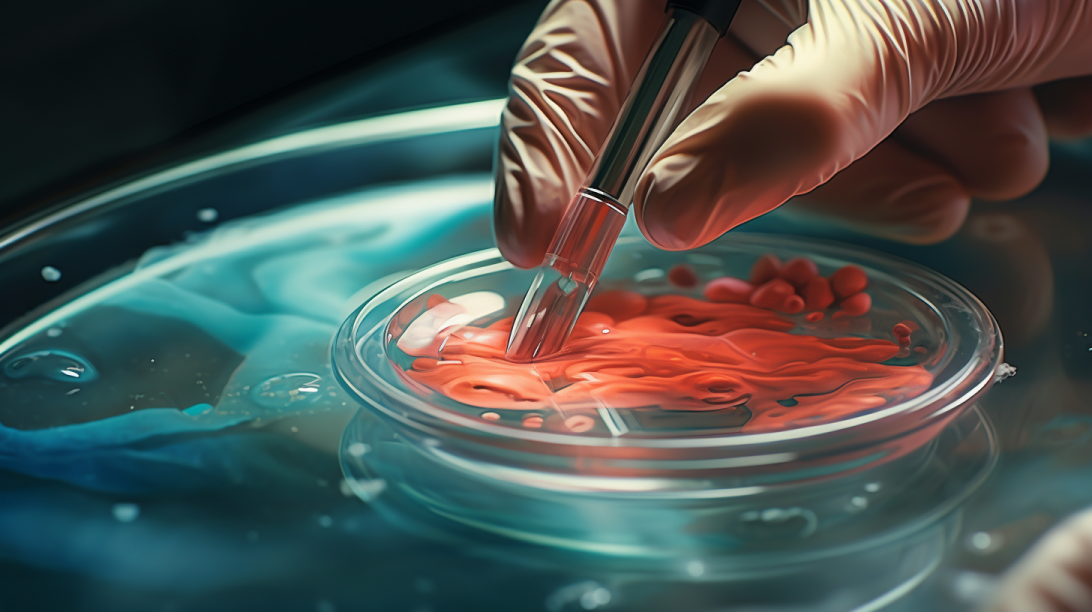Research is a critical tool for gaining insights and understanding the world around us. Whether...
The journey of a new drug from the laboratory to the pharmacy shelf is a fascinating, complex, and often arduous one. It's a bit like navigating a labyrinth filled with twists and turns, dead ends, and the occasional eureka moment. But fear not, for there's a new player in town, ready to shake things up. Enter artificial intelligence (AI), the technological wizard set to revolutionize the labyrinthine process.
The Traditional Drug Discovery and Development Process
The traditional drug discovery and development process can be broken down into several key stages. It all begins with Target Identification, where scientists identify a biological target, such as a protein or gene, involved in a disease condition. The goal is to find a molecule or 'drug' that can interact with this target to alter its behavior, thereby treating or curing the disease.
Next comes Lead Discovery, where scientists screen thousands, sometimes millions, of compounds to find 'lead' molecules that interact effectively with the target. These leads are then optimized in the Lead Optimization stage to improve their properties, such as potency, selectivity, and safety profile.
Once a promising lead compound is identified, it moves into the Preclinical Development stage. The drug is tested in vitro (in a test tube) and in vivo (in animals) to assess its safety and efficacy. If the drug shows promise and meets safety standards, it's time to take a deep breath and move into the clinical development phase.
Clinical Development is a three-phase process. Phase I trials involve a small group of healthy volunteers to assess the drug's safety, dosage, and side effects. Phase II trials involve a larger group of patients to test the efficacy and side effects. Finally, Phase III trials involve large groups of patients to confirm effectiveness, monitor side effects, and compare the drug to commonly used treatments. If the drug successfully navigates these trials, it's submitted for regulatory approval.
Now, if you're thinking this process sounds time-consuming and expensive, you're absolutely right. It can take 10-15 years and billions of dollars to bring a drug to market. And here's the kicker: the success rate is only about 1 in 5,000. That's a lot of time, money, and effort for a 0.02% chance of success.
The traditional drug discovery and development process also faces other challenges. For instance, the process of screening compounds to find effective leads is like finding a needle in a haystack. It's labor-intensive and requires significant resources. Additionally, the process is often linear, meaning a failure in a later stage can nullify years of work and millions of dollars.
Moreover, the process only sometimes accurately predicts how a drug will perform in humans based on preclinical testing. Other times, drugs that show promise in the lab fail in clinical trials due to unforeseen side effects or lack of efficacy. This unpredictability adds to the risk and cost of drug development.
In summary, while the traditional drug discovery and development process has led to numerous life-saving treatments, it's far from perfect. It's a process characterized by high costs, low success rates, and significant challenges. But AI is here to revolutionize this complicated process.
The Advent of AI in Healthcare
AI is no longer the stuff of science fiction. It's here, it's now, and it's transforming the way we live, work, and even heal. In the realm of healthcare, AI is like a brilliant new doctor on the team, armed with the power of machine learning, deep learning, and natural language processing. But this doctor doesn't sleep, doesn't take breaks, and can process and analyze data at a speed that would make a supercomputer blush.
AI in healthcare is a vast and rapidly evolving field. It's like a Swiss Army knife, with a tool for every job. Need to predict patient outcomes? AI's got you covered. Want to personalize treatment plans? AI can do that too. Looking to streamline administrative tasks? You guessed it - AI is on the case.
AI's applications in healthcare are as diverse as they are impressive. For instance, AI algorithms can analyze medical images, such as X-rays and MRIs, to detect diseases like cancer, often more accurately than human doctors. AI is also able to predict patient outcomes based on health data, helping doctors make informed treatment decisions. Furthermore, it can streamline administrative tasks, such as scheduling appointments and managing patient records, freeing up time for healthcare professionals to focus on patient care.
But AI's potential in healthcare continues beyond there. It's also making waves in drug discovery and development, promising to revolutionize the process and usher in a new era of pharmaceutical innovation.
So, how does AI work in drug discovery and development? Well, it all starts with data - lots and lots of data. AI algorithms are like sponges, soaking up vast amounts of biological, chemical, and clinical data. They then analyze this data to identify patterns and make predictions.
In the drug discovery stage, AI algorithms can analyze vast amounts of biological data, such as genomic, proteomic, and metabolomic data, to identify potential therapeutic targets. They can also screen millions of compounds in a matter of days to identify potential leads, a task that would take humans years to complete.
At the drug development stage, AI algorithms can analyze vast amounts of clinical data to inform trial design. They can predict outcomes based on different design parameters, helping researchers to design more efficient and effective trials. AI algorithms can also analyze patient data, such as electronic health records, to identify potential trial participants, eliminating the need for time-consuming manual searches. The future of medicine looks equally as bright.

The Benefits of AI in Drug Discovery and Development
The manifold benefits of AI integration in drug discovery and development are set to revolutionize the pharmaceutical industry. With the promise of increased efficiency, cost-effectiveness, and groundbreaking innovation, we are moving closer to a future where diseases are diagnosed and treated more quickly, effectively, and affordably.
Efficiency Boost through: The integration of artificial intelligence can significantly expedite the drug discovery and development process. By swiftly analyzing vast amounts of data, AI identifies potential therapeutic targets and lead compounds much faster than traditional methods. This acceleration can reduce the time it takes to bring a drug to market, potentially saving lives.
Cost Reduction: The application of AI has the potential to slash the cost of drug discovery and development. By streamlining the process and increasing success rates, it could save pharmaceutical companies billions of dollars. This cost-effectiveness could lead to lower drug prices, making treatments more accessible to patients.
Success Rate Amplification: Artificial intelligence can enhance the success rate of drug discovery and development. By predicting how a drug will perform in humans based on preclinical data, AI reduces the risk of failure in clinical trials. This can lead to a higher success rate in drug development, bringing patients more effective treatments.
Innovation Drive: The potential of AI to drive groundbreaking innovation in the pharmaceutical industry is immense. By integrating multi-omics data and utilizing machine learning algorithms, AI can identify novel therapeutic targets and predict drug responses. This could lead to the development of new treatments for diseases that currently have no cure.
The Challenges and Ethical Considerations of AI in Drug Discovery and Development
Like any powerful tool, AI comes with its own set of challenges and ethical considerations. These include data privacy, algorithmic bias, regulatory hurdles, and ethical considerations. By acknowledging and addressing these challenges, we can harness AI's power responsibly and effectively.
One of the main challenges of using AI in drug discovery and development is data privacy. AI algorithms require vast amounts of data to function effectively. This data often includes sensitive patient information, which must be protected to maintain patient trust and comply with data protection laws. Ensuring data privacy while harnessing the power of AI is a delicate balancing act that requires careful consideration and robust safeguards.
Another challenge is algorithmic bias. AI algorithms are only as good as the data they're trained on. If this data is biased, the algorithms can produce biased results. This can lead to inequitable healthcare outcomes, undermining the goal of improving patient care. To prevent algorithmic bias, it's essential to use diverse and representative data sets when training AI algorithms.
Regulatory hurdles are another challenge. The use of AI in healthcare is a new and rapidly evolving field, and regulatory frameworks are struggling to keep up. Ensuring that AI-driven drugs meet safety and efficacy standards while navigating a complex and evolving regulatory landscape is a significant challenge.
Lastly, there are ethical considerations. The use of AI in healthcare raises important ethical questions, such as who is responsible if an AI makes a mistake? How do we ensure transparency and accountability in AI decision-making? And how do we balance the benefits of AI with potential risks? These are complex questions that require thoughtful discussion and careful consideration, but addressing the challenges and ethical considerations of AI in drug discovery and development is achievable with proactive measures.
Ensuring data privacy can be accomplished through stringent data protection measures, including anonymizing patient data and robust cybersecurity practices. Algorithmic bias can be minimized by using diverse and representative datasets for AI training. Regulatory hurdles can be navigated through collaboration with regulatory bodies, helping to shape an evolving landscape that ensures safety and efficacy. Ethical considerations, including AI accountability and transparency, can be addressed through thoughtful discussions and guidelines, continuously evaluating the balance between AI benefits and risks. Ultimately, humans are still needed to oversee all of these aspects, especially ethical points, but by taking these steps, we can responsibly harness AI's transformative power in healthcare.
The Future of AI in Drug Discovery and Development
The future of AI in drug discovery and development is bright. We expect AI algorithms to become increasingly sophisticated, capable of integrating multi-omics data to identify novel therapeutic targets and predict drug responses. The future of medicine is personal, and AI will play a key role in this shift, analyzing individual patient data to design personalized treatment plans.
We can also expect more partnerships between AI companies, pharmaceutical firms, academic institutions, and healthcare providers. These partnerships will drive innovation, bringing more AI-driven drugs to market and improving patient care.
In conclusion, as we continue to harness the power of AI, we can look forward to a future where drug discovery and development are more efficient, cost-effective, and innovative than ever before. It's a future where diseases are diagnosed and treated more quickly, treatments are personalized and effective, and the power of collaboration is harnessed to drive innovation and improve patient care. The possibilities are endless, the potential is immense, and the best is yet to come. Here's to the future of AI in drug discovery and development - may it be as exciting, transformative, and hopeful as we imagine it to be.
Join us at the Forefront of AI
For those that don’t know about Techspert already, we were founded in 2016 as a response to the difficulties faced trying to connect with the right experts at the right time to inform commercial decisions. Our unique AI algorithm was developed to meet this need and, as a result, source the right experts quicker than anywhere else.
Ready to test the revolutionary capabilities of AI for your business? Get in touch to see how we can help.






